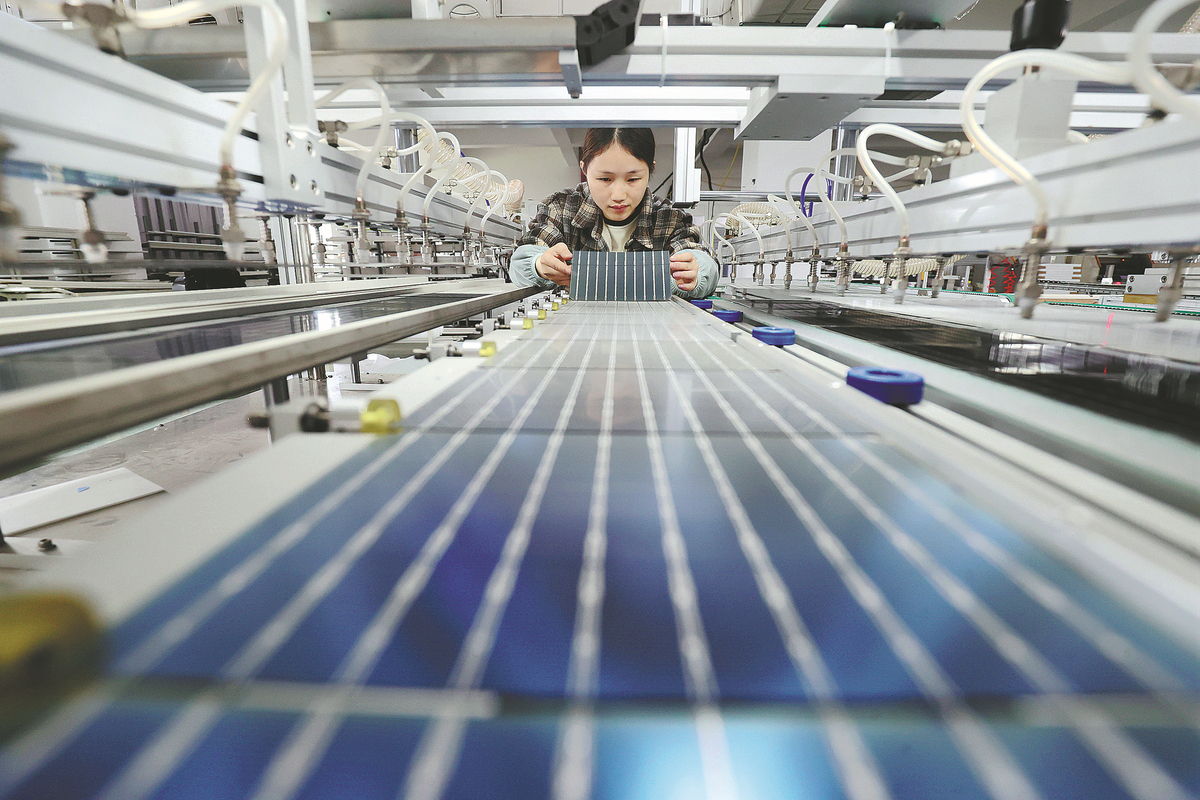Expert: 'Overcapacity' claim aimed at restricting China


The so-called China's overcapacity follows the narrative tradition and discourse of the so-called China threat theory in Western countries in recent years, essentially further reinforcing strategic limitations on China, Wenhui Daily reported on April 21, quoting Quan Heng, Party secretary and researcher of the Shanghai Academy of Social Sciences.
In recent years, China's "new trio" represented by electric vehicles, lithium batteries, and photovoltaic products has been highly favored in the global market, bringing new momentum to drive global economic growth. However, the US-led West has used their discourse system and agenda-setting advantages to politicize and securitize trade issues using the rhetoric of trade protectionism.
Especially against the backdrop of challenges to the export restrictions and chip bans introduced by the Biden administration in the United States, as well as the lack of effectiveness in imposing new tariffs on Chinese electric vehicles, certain Western countries attempt to defend their trade protectionist policies and create momentum for so-called national security protection using the rhetoric and tactics of the "China overcapacity theory."
This politicization and securitization of issues such as capacity and trade go against the principles of economic globalization and fair market competition, constituting a new rhetoric of the "China threat theory," Quan said.
It will have a serious impact on the development of the global green and low-carbon industry, being detrimental not only to the competitive advantage of industries in the United States and other Western countries but also to the stable and long-term development of the world economy.
In theory, overcapacity refers to the supply capacity of products exceeding market demand, which reflects profound economic laws and effects behind market supply and demand relationships.
From the perspective of globalization, production capacity that exceeds domestic market demand but satisfies international market demand is not overcapacity but rather the product export capacity based on international market division and the competitive advantage of global industrial internationalization.
China's "new trio" products are not overcapacity but are high-quality products with broad global market demand.
Just like the large-scale chip exports of the US, Boeing's aircraft exports, and the large-scale automobile exports of Germany, Japan and South Korea, China's massive exports in the green industry field are also based on advantages in research and development capabilities, industrial chain support, human capital and the advantage of a super-large-scale market.
It is a type of advantageous industrial export capacity that meets domestic market needs and conforms to international market demand rather than overcapacity.
For China's own development, these advantageous industries are important demonstrations of industrial transformation and upgrading, the conversion of old and new driving forces for economic development, and the realization of high-quality development, said Quan.




































